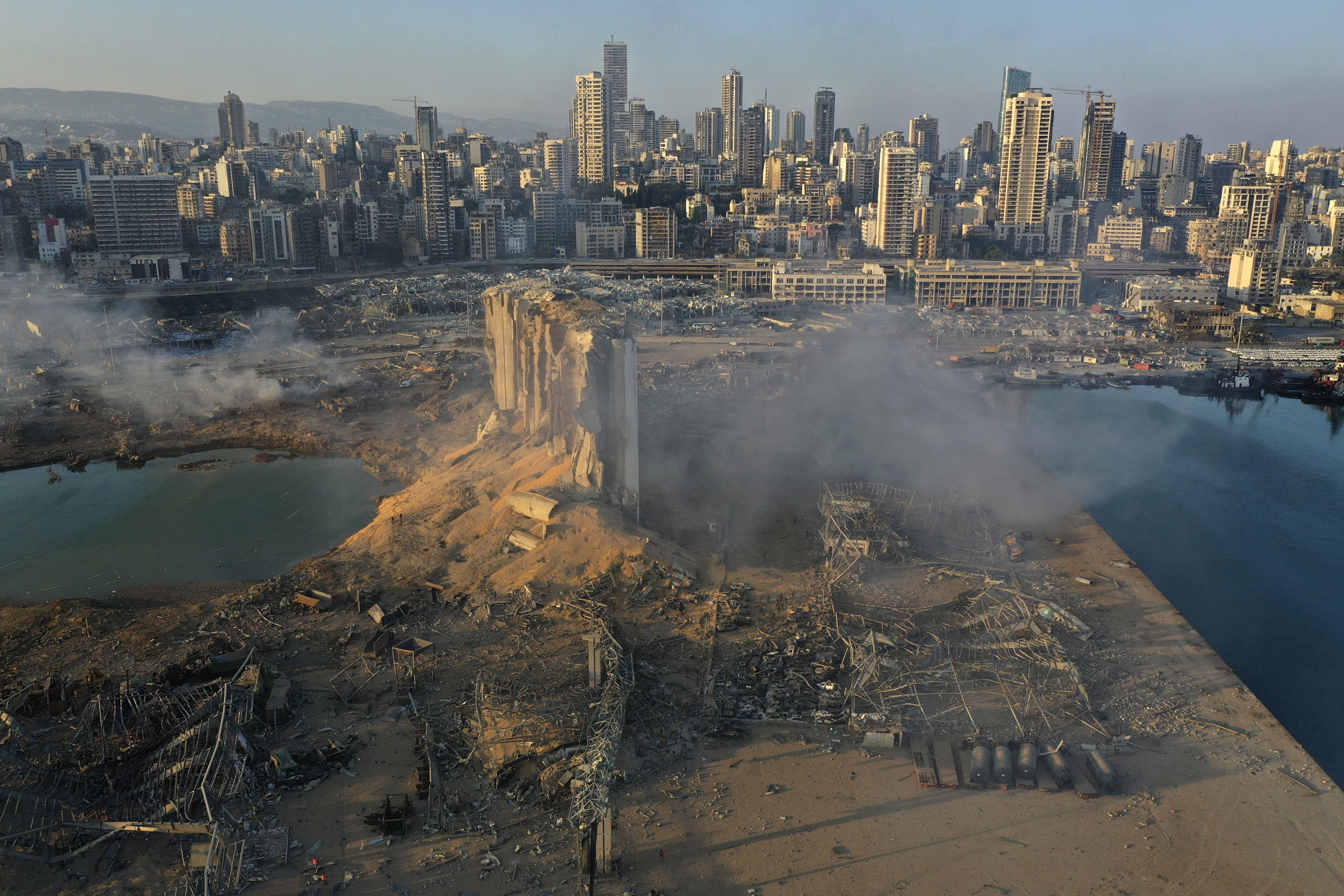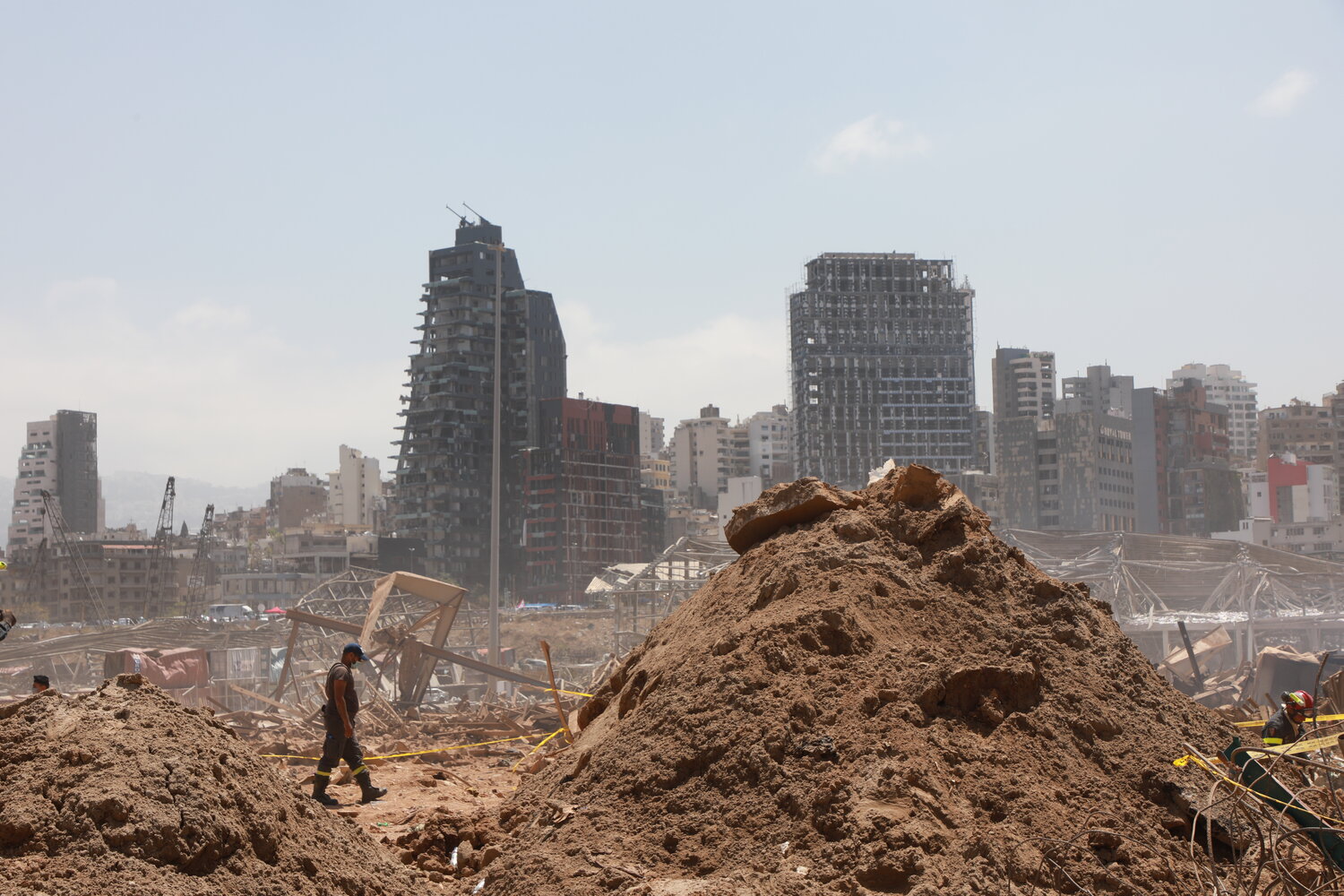The population demands that the facts be clarified and responsibilities be taken for the catastrophe, whose origin pivots in the abandonment of 2,750 tons of ammonium nitrate in the port six years ago.
The catastrophe at Beirut
The port of Beirut irregularly stored 2,750 tonnes of ammonium nitrate for six years, a chemical that is used to make everything from explosives to fertilisers and whose combustion produced Tuesday’s explosion. Everything points to the fact that the substance arrived there on a Moldovan flag-ship, the Rhosus, which was abandoned loaded with the dangerous material after suffering technical problems in 2013. How this shipment was stored during all this time, without the minimum security measures, is at the centre of an investigation still full of unknowns.

Cyprus authorities located and questioned yesterday, at the request of the Interpol office in Beirut, a Russian man linked to Rhosus, Reuters reports. A source consulted by the agency reported that it is a 43-year-old businessman named Igor Grechushkin. Little else is known. The captain of the ship in 2013, Boris Prokoshev, explained this Thursday that the chemical ended up in Beirut after the owner of the ship – who he also identifies as Grechushkin – told him that he had to make an unscheduled stop in the Lebanese capital to pick up a load.
A report published in 2015 by the Ship arrested network of lawyers gave data that are now significant. “On 9/23/2013, m / v Rhosus, with the flag of Moldova, set sail from Batumi Port, Georgia to Beira in Mozambique with 2,750 tons of ammonium nitrate in bulk. En route, the ship faced technical problems that forced the captain to enter the port of Beirut “, reads the first paragraph of the Rhosus report, arrest and release of the crew signed by two lawyers.
This would begin what was initially a brief stop, which was later complicated by damage to the ship, non-payment of port fees, part of the crew being retained, and the final abandonment of the material and the vessel by the charterers and the owner. “They lost interest in the cargo,” the text reads. Now it has resulted in a catastrophe that has further devastated and outraged a country that was already dragging a political, social and health crisis that has caused major riots in Beirut’s streets in recent months.

The Lebanese population, jaded by the situation, demands that these facts be clarified and guilt assumed in an atmosphere of mistrust towards the investigation of the catastrophe. For the moment, the Lebanese justice has ordered the house arrest of those responsible for the port of Beirut without specifying the number of people involved or their identities.
But for their part, both the port chief and the customs chief have ensured that several letters were sent to the judiciary requesting that the material be removed and that no action was taken, Reuters reports. Predictably, senior customs officials wrote to Lebanese courts between 2014 and 2017 to request information on how to dispose of the material, according to records posted on Twitter. by Lebanese MP Salim Aoun.

To guarantee the independence of the process and safeguard impartiality, four former prime ministers – Saad Hariri, Najib Miqati, Fuad Siniora and Tamman Salam – have called on the international community and the Arab League to lead the ongoing investigation, a proposal To which the organisation Human Rights Watch has joined for being the best “guarantee so that the victims of the explosion receive the justice they deserve.” France has offered to collaborate in the investigations and also maintains an open line for its prosecutors to investigate the case for the 24 registered French wounded.
“After the inspection of the ship by the Port State Control, the ship was prohibited from sailing (…) Due to the risks associated with the ammonium nitrate on board the ship, the port authorities unloaded the cargo in warehouses of the port. The ship and cargo remain to date in the port awaiting auction and / or adequate disposal ” continues the text of Ship-arrested, which adds that in the request of the lawyers to the judge in Beirut to allow the repatriation of part of the crew, trapped in the Rhosus for about a year due to immigration restrictions, it was already alerted to the imminent risk they faced due to the “dangerous” nature of the cargo.
The detonation of ammonium nitrate is only possible through contamination with other substances or with an intense source of heat, as it is not explosive by itself. Therefore, its storage must follow strict rules for isolation.
In July 2014, the sailor and journalist Mikhail Voytenko denounced in a specialised publication that four of the crew, the captain of Russian nationality, and three Ukrainians, were stranded in a “floating bomb”. “The Beirut authorities do not allow the remaining crew to leave the boat and fly home. The reason is obvious, they do not want to keep the ship abandoned in their hands, with dangerous cargo, explosives, in fact” he wrote.
They then managed to get off the ship and the cargo was moved to the port in what has resulted in a deadly string of errors. “I feel sorry for the people (killed or injured in the explosion). But the local authorities, the Lebanese, must be punished. They don’t care about the cargo at all ” Boris Prokoshev, the former captain of the ship, told Reuters.




